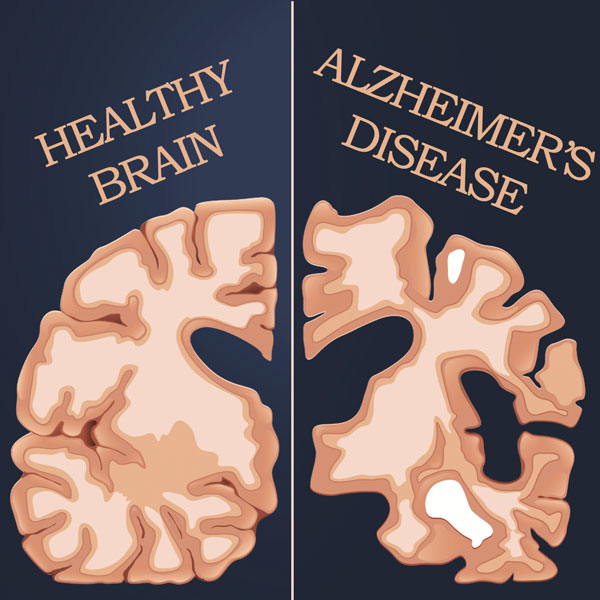We know that dementia causes irreversible, progressive and ultimately fatal cognitive decline. It doesn’t just affect memory but also impairs the executive (decision-making) function, learning, language, and basic movements such as swallowing and walking. Keeping this in mind, it is no wonder that caregivers are in great demand today. Nearly half of all caregivers living in the U.S. provide aid to someone living with Alzheimer’s Disease (AD) or another form of dementia. One in three caregivers is age 65 or older. Two-thirds are women; one-third are daughters. A startling statistic given by the AD Foundation states that “Of the total lifetime cost of caring for someone with dementia, 70 percent is borne by families – either through out-of-pocket health and long-term care expenses or from the value of unpaid care.”

Besides the financial toll given to these patients’ families, Alzheimer’s takes a truly horrific toll on AD caregivers. Twice as many of them report substantial emotional and physical difficulties as being reported in other forms of caregiving. Today changes are taking place to help in dealing with Alzheimer’s Disease. First, the U.S. Food and Drug Administration (FDA) has recently warned 17 companies that sell dietary supplements to stop making false claims that their products can prevent or cure AD.
The agency comments, “These products may be ineffective, unsafe and could prevent a person from seeking an appropriate diagnosis and treatment.” Second, art and music programs should be promoted for the importance of maintaining long-term memory, even in the advanced dementia patient. My Mother, a former toe dancer, and lover of classical as well as show music, listened smilingly and contentedly by the hour to her radio/CD music. Wonderful memories from her youth seemed to bring Mom multiple moments of happiness in her last few years of life.
Third, many younger primary doctors are now assessing potential dementia patients in their offices, and, consequently, aiding their families in dealing with the disease.
Fourth, due to personality changes, confusion, and sedation, health providers warn that opioids (to control pain) should be used sparingly to prevent AD sufferers’ unnecessary falls and inability to carry out, still possible, every day routines.
Fifth, in the earlier year/s of suffering from the disease, working younger husbands and wives have equipped their AD mates with new tech devices to locate them in day programs. If their loved ones get lost, these tech items, such as AngelSense GPS tracker or a child’s tracking watch known as LG GizmoPal2, can also help the working partners find them. Robotic stuffed animals (in dog and cat form) can help calm agitation in the advanced form of dementia.
Sixth, Family Alliance, (Huntley and Woodstock) provides aid to the AD patient by determining their strengths and weaknesses, and then placing that particular senior into respite programs to support them throughout the week. The agency also provides caregiver “time out” daily programs to help the caregiver sustain the difficult passage of hours in their care giving role. You can check for many other local agencies’ availability in fulfilling these two needs, as well.
With this lonely job in hand, caregivers are asked to seek help from their families in donating time, finances, or other support to this effort. Here in Sun City, it can be possible to discover early or late hours (daily or as often as possible) for a brief exercise program, or other solo or group social activity to bring caregiver stress levels down and to avoid isolation. To prevent future fighting among family members, all Sun City seniors are urged to develop an Advanced Health Care Directive for their later years now before any form of dementia takes over. This should include a proxy to be your voice and represent your wishes when needed in the future. Look for a qualified lawyer to prepare your documents.
With life expectancy on the rise (tops in the 85 and older age group followed closely by the 100 plus age group), the AD Foundation provides us with the devastating figure of a 23% increase in Alzheimer’s and other forms of dementia cases during the years of 2010 to present. The foundation hastens to add (as announced earlier in Part 1), “Unless a treatment to slow, stop, or prevent the disease is developed, in 2050, Alzheimer’s is projected to cost more than $1.1 trillion (in 2019 dollars).”
Sadly, Wall Street Journal reported in March that the failure to meet expectations of one of its promising researched drugs, BAN2401. This medicine was hoped to reduce plaques in the brains of AD patients. Now research is strongly turning, in an expedited process, to a different direction for discovery of a cure. For more than 20 years, Professor Michal Schwartz of Israel has been studying the relationship of the immune system and the brain’s health and disease. The researcher comments “This is what we’re currently doing, developing a way to boost the immune system as a way of modifying Alzheimer’s Disease and dementia.”
Let’s hope it works!




